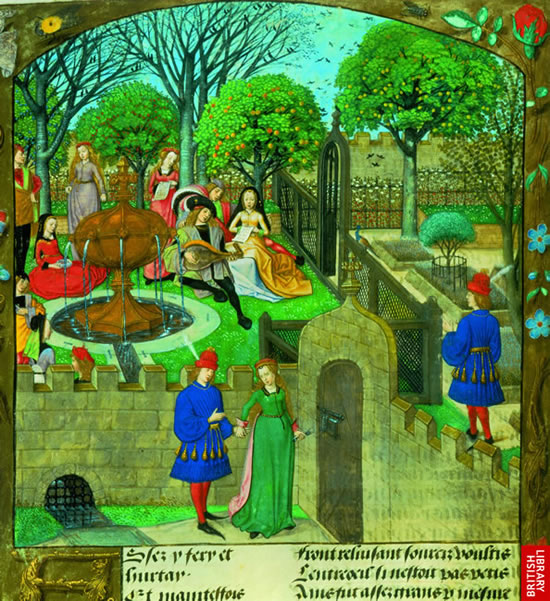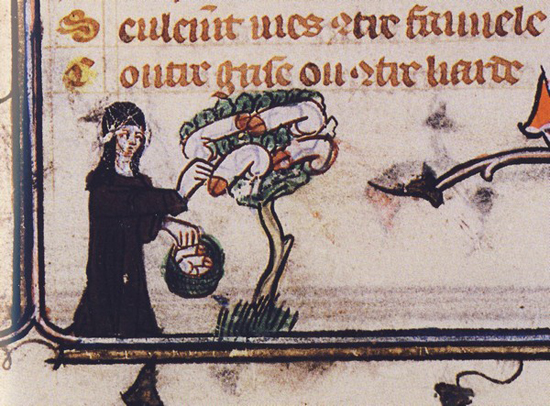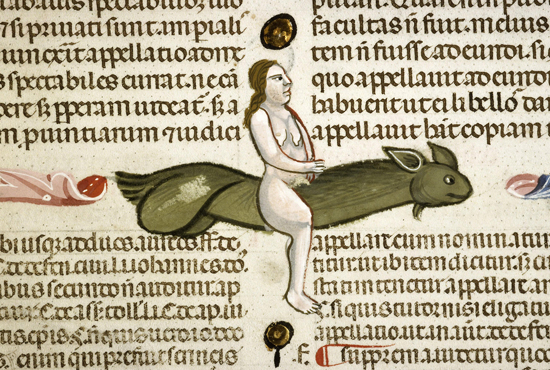'Roman de la Rose'

In the century that followed Henry and Eleanor, the rose garden metaphors associated with Fair Rosamond and courtly love were adapted by the most famous of French medieval poems, Roman de la Rose.
In this allegorical dream-poem, the lover tells of his quest for the rose (his love) inside the walled garden. After he is shot with an arrow by Cupid, he has to deal with characters like Idleness, Jealousy and Foul Mouth who are in the way (Jealousy actually locks the Rose away in a tower). For all the inspiring allusions to the Garden of Eden and the Virgin Mary, the sexual innuendoes of plucking her rosebud ensured it remained popular for centuries.

The first section of Roman de la Rose was composed in the 1230’s by Guillaume de Lorris and it is more conventionally romantic. The much longer second section of the poem was written 40 years later, in the 1270’s, by Jean de Meun and it is bawdy and cynical about courtly love. Famously, this provoked an attack by Christine de Pizan around 1400 on the grounds that it was misogynistic. It’s not that she missed the satire; she just resented its flippancy and vulgarity toward women. Religious conservatives joined her in criticizing it because the one thing they could all agree on was that it encouraged young men and women to waste their lives reading romances.
Yet women were among the best illustrators of the time and one of them, Paris-based Jeanne de Montbaston, illustrated various editions of Roman de la Rose in the mid-1300's. Like other illustrators she drew occasional large penises in the margins of the manuscript like you see below. A Penis Tree, as one academic dubs it. Her husband was a writer and bookseller and possibly an illustrator as well.

Below is another example of erotic marginalia from around the same time - this "flying penis monster" is from a version of Decretum Gratiani with commentary by Bartolomeo da Brescia. Were these monks bored? Or were they mocking the serious texts they were transcribing?

